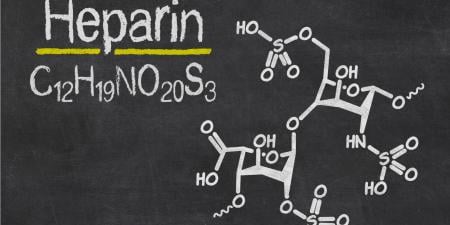Case
Joe is a motivated first-year medical student who managed to score close to the class mean on all of his tests during the first semester. During the first exam of the cell biology course, Joe found himself distracted by the movements of a classmate seated 1 row ahead of him. He noticed that Danielle was repeatedly taking out her cell phone, looking at the screen, and slipping it back into her pocket. Occasionally, she punched on the keys before putting the phone away. Intrigued by what she is so busy with, Joe craned his neck to get a look at the cell phone screen. On it he reads,
17D18E do u no 19?
Joe watched Danielle hit the send button and slide the phone back into her pocket. Stunned by what he had just seen, Joe tried to concentrate on finishing his test, but he could not help noticing that Danielle's text-messaging dialogue continued for the remainder of the exam, and he watched her exchange answers with the recipient of her text messages several times. Joe felt disappointed and a little angry to be burdened with this knowledge.
Joe later learned from other members of his class that the Deans' Office had already been made aware of cheating amongst several students. As part of the Deans' investigation, an email was sent out to the student body encouraging students to report the names of specific wrongdoers. Joe did not know what to do.
Commentary 2
Two worlds with different expectations collide in medical school. On one hand, medical school is exactly what its name states, a "school," whose enrollees are students, as most of them have been for the great majority of their lives. They are not yet in the professional world. While this does not absolve them of acting unprofessionally or of conducting themselves with less than the utmost integrity, society does expect less of students than it does of "professionals," in this case practicing physicians. As medical students, we are expected to display limited medical knowledge in the hospital, to make the incorrect diagnosis most of the time, and to be dependent on more experienced medical personnel for the majority of our decision making. As a result of these expectations we have multiple layers of support in the classroom and on the wards. Hence, we assume that our judgment in other aspects of life is not held to the same standards as those in the "real" world.
The other world that we inhabit in medical school—the world of doctors-in-training—demands the highest professional standards perhaps of any vocation. We are studying to be doctors, and during our 4 years in medical school we interact with and treat real patients. Patients often consider us to be their actual physicians, ignoring the length of our short white coats or the term "medical student" written on our identification badges. Within this world, we are held to the same professional standards as house officers, attending physicians, and professors emeriti. And these expectations dictate that we act with honesty, integrity, and the utmost respect for professionalism.
Therefore, when we are asked by our Dean's Office to report the names of our colleagues who are cheating, we are faced with the discordant expectations of our 2 worlds. We take exams in a room patrolled by proctors, whose duty it is to ensure that no student is cheating, and we assume it is their responsibility along with the course directors and the Dean's Office to handle breaches of professionalism should they arise. After all, that is the way it has been in our other schools and we are still simply students.
Challenging the label "simply students" is the fact that we are enrolled in a professional school and expected to conduct ourselves with honesty and integrity. As physicians, we will be responsible for patients whose health and lives are in our hands, and it will be our duty above all else to ensure their well-being. This duty confers upon us responsibility not just for our own actions, but also for those of our colleagues. A fellow physician who conducts himself in an unprofessional manner may negatively affect a patient, and the code that implores physicians to "do no harm" mandates that we take the initiative to confront that colleague. Moreover, this responsibility begins not when we step into the hospital as interns, but when we step into medical school as first-year students. It begins when we are given our white coats and asked to recite our physician code of beneficence and nonmalevolence. It makes no sense to permit unprofessional behavior throughout medical school and expect graduates to begin conducting themselves professionally on the day they become interns. Professional behavior—like recognizing disease symptoms, understanding treatment, and talking to patients—must all be learned in medical school.
So, at some point in year 1 or 2, we find ourselves requested by the Dean's Office to report our cheating classmates. It is easy to say that each of us has a responsibility to ensure that the code of professional conduct is adhered to by all students, but it is far more difficult to report a classmate's name. While one can justify silence by saying, "It's just an exam, it doesn't mean anything," remaining silent may allow the 2 students to get through medical school by cheating—and with significant gaps in their knowledge. Even worse, perhaps they will continue this behavior on the wards, and lie about a lab value or a physical finding. Then it will not be just an exam, but possibly a patient's life.
Ultimately, each of us must live up to his or her own individual code of professionalism that incorporates these universal professional ideals. The goal of a professionalism committee is to create an environment that facilitates our development of a standard of professionalism. Our particular medical school's honor system or professionalism committee is intended to provide us with guidelines that should be followed, and in a given situation we must act with these in mind while making our own decision. Thus when we graduate and become practicing physicians in 4 short years, we will each carry with us our individual professional codes developed through these universal standards, but of which we have full ownership. It will not be a code forced into our conscience, but rather a system of principles that we each developed with the facilitation of our medical school.



